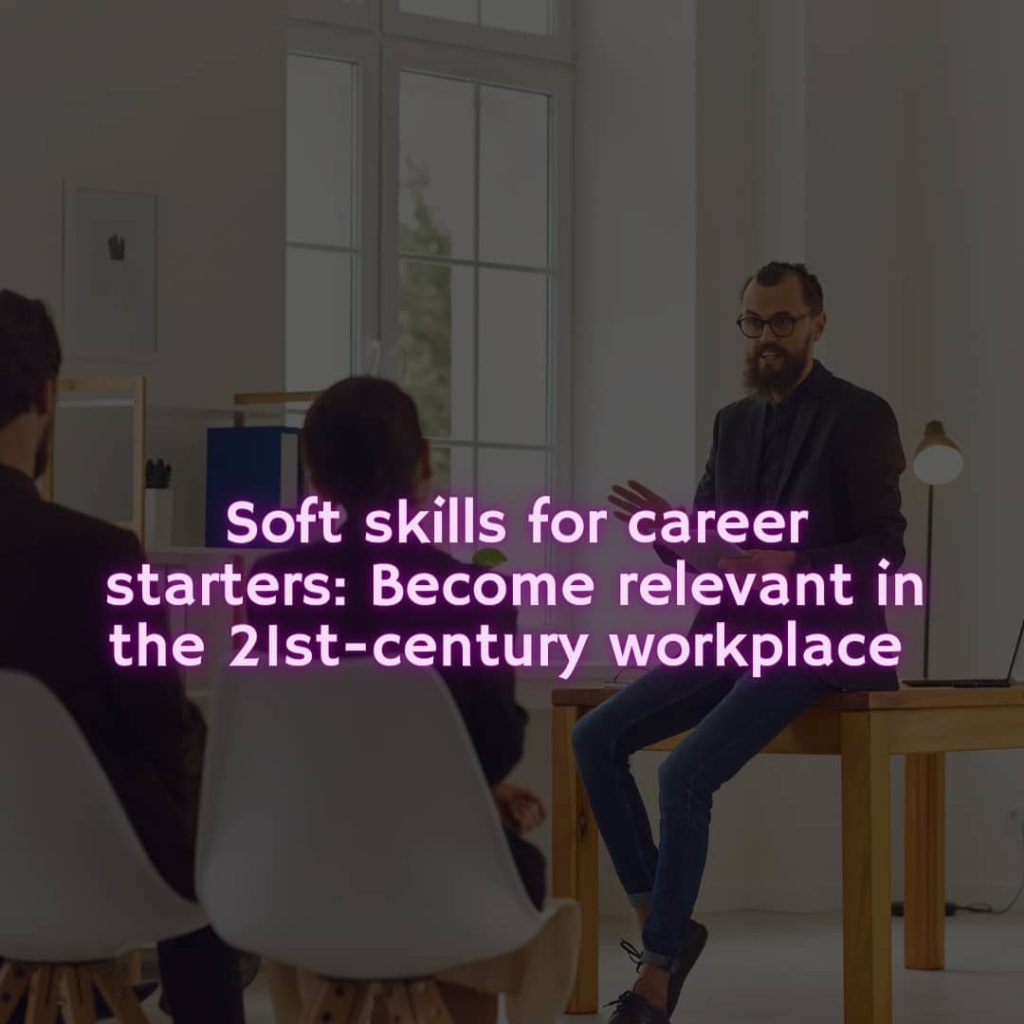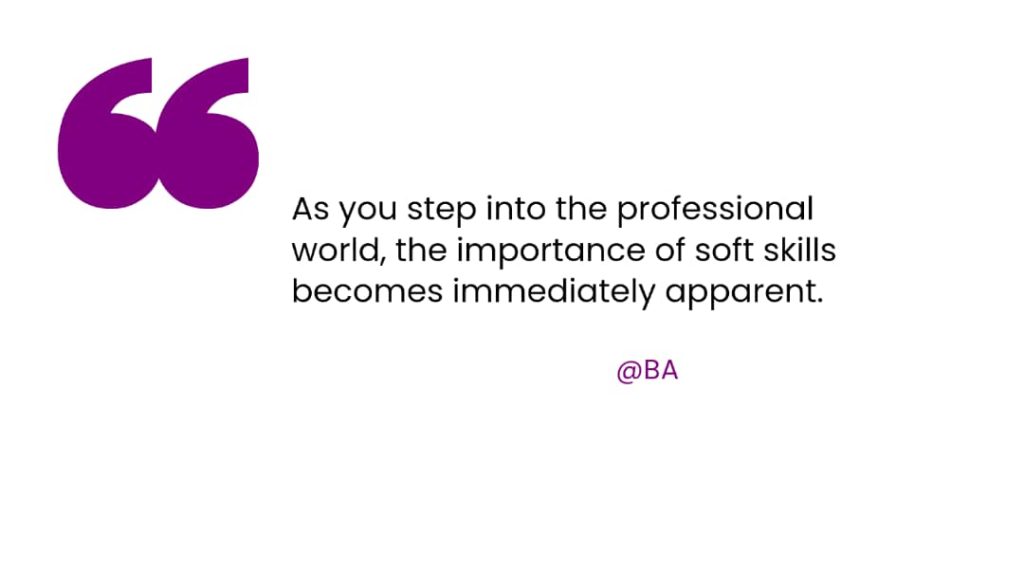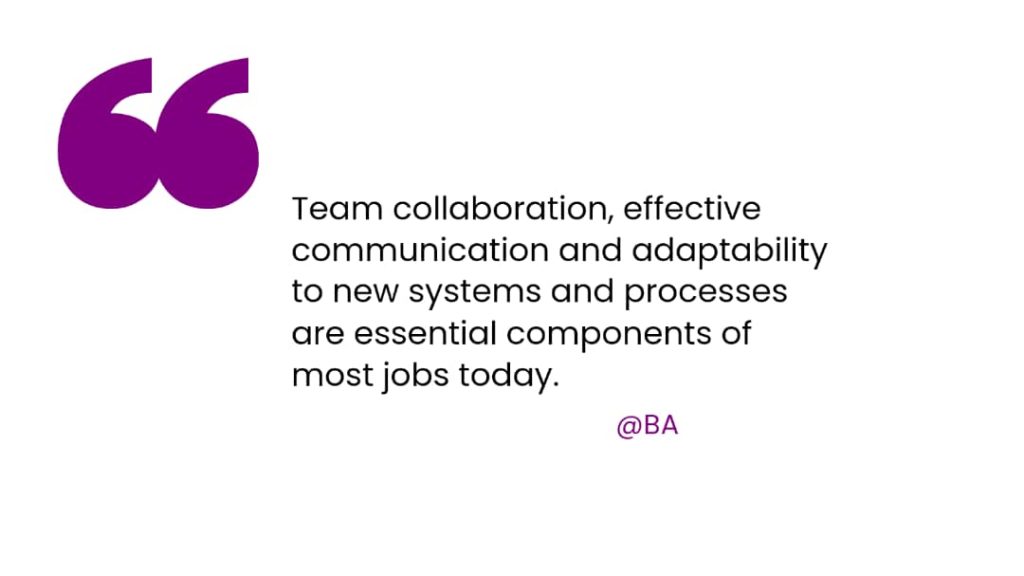Soft skills for career starters: Become relevant in the 21st-century workplace
The education system equips you with a wealth of technical skills, from advanced mathematics and science to specialized fields like engineering, computer science, and finance. However, one significant area that often gets overlooked is the realm of soft skills. These are the interpersonal, communication, and problem-solving abilities that are crucial for thriving in the workplace. Educators prepare you to tackle technical challenges but looks like you are left to figure things out on your own when it comes to soft skills. Soft skills for career starters are prioritised less often.

You realize that technical acumen alone is not enough when you enter the job market or start a journey in the work environment. Starting or engaging in a professional conversation with a colleague or potential employers, preparing for interviews, dealing with a difficult boss or co-worker and tackling conflicts put your soft skills to the test. Soft skills are not typically taught or assessed in school, and this leaves many new graduates at a disadvantage.
As you step into the professional world, the importance of soft skills becomes immediately apparent. Adapting to a new workplace involves more than just understanding your job role. It includes fitting into the company culture, communicating effectively with diverse teams, and navigating office politics. These situations are where soft skills play a crucial role.
The Importance of Soft Skills in the 21st Century Workplace
In today’s technology-driven workplace, soft skills are more vital than ever. According to a 2019 LinkedIn report, 92% of talent professionals and hiring managers confirmed that soft skills were equally or more important than hard skills, and 89% said that bad hires typically lacked soft skills.
Team collaboration, effective communication, and adaptability to new systems and processes are essential components of most job roles today. Technological advancements are continuously reshaping the workplace, making it prudent to stay updated with the latest tools and excel in interpersonal dynamics and problem-solving in the professional environment. For me, soft skills+ technical skills= improved performance.

Investing in soft skills is a lifelong journey that pays significant dividends in your career. According to a study by the Carnegie Foundation for the Advancement of Teaching, 85% of job success comes from having well-developed soft skills and people skills, and only 15% from technical skills and knowledge (hard skills).
I always read books, listen to experts, observe how experts demonstrate their soft skills in TV shows and apply them to improve my soft skills. People have different ways of learning. Pay attention to what works for you and stick to it.
Soft skills for career starters
Communication Skills
Effective communication is the cornerstone of a successful career. It enables you to convey your ideas clearly, listen actively, and engage in meaningful dialogues with colleagues and clients.
Use active listening, talk often (meaningful and valuable conversation at appropriate times), and seek feedback on your communication style. Additionally, read extensively to enhance your vocabulary and comprehension skills.
Teamwork and Collaboration
Most modern workplaces function through collaborative efforts. The ability to work well in a team, share responsibilities, and support your colleagues is key. Engage in a lot of group activities or take part in workshops that focus on teamwork and group dynamics to improve collaboration skills.

Emotional Intelligence
Emotional intelligence (EQ) is the ability to understand and manage your own emotions, as well as those of others. High EQ can lead to better teamwork, leadership, and conflict resolution. This is like the foundation of all other soft skills.
Focus on how you feel every time before you respond to people. Stay open and seek to understand the emotions and perspectives of those around you. You will be better at managing your relationship with people.
Problem-Solving Skills
The ability to solve problems successfully is highly valued in any role. It involves critical thinking, creativity, and the ability to remain calm under pressure. Enhance your problem-solving skills by engaging in activities that challenge your thinking, like puzzles. I use the question ‘How do I make this better?’ to turn on my creative thinking or brainstorming mood. You can try it.
Adaptability and Flexibility
The ability to adapt to new situations, learn new skills, and be open to change is important to your growth at the workplace and career. Artificial intelligence completes a lot of tasks now. Your current skills may not be needed at some point. This raises a concern for continuous learning. Sometimes, change is uncomfortable but change that brings growth is worth it. Remain open to feedback and new ideas to stay relevant in your career.
Time Management
There can be so much to do at work. Managing your time and prioritizing tasks are essential for productivity and meeting deadlines. Normalise setting realistic goals and timelines, breaking tasks into smaller steps and scheduling tools. You can reduce the risk of burnout when you manage time well.
Leadership Skills
Even if you are not in a management position, leadership skills can help you stand out and take initiative in your role. Enhance your leadership skills by accepting leadership roles in group projects. Seek mentorship from leaders you admire and participate in leadership development programs. You can become a great leader if you have developed the skills we have discussed above.
Assess your current skill level in each of these areas and identify where you need the most improvement. Create a plan and seek out opportunities for learning and growth.
Soft skills for career starters in the 21st century are as important as honing technical abilities. You stand out as a well-rounded, capable and relevant professional when you invest in your soft skills. Embrace lifelong learning to deal with the challenges and opportunities of your career.
Need career assistance? Send a message.


